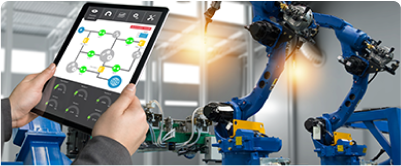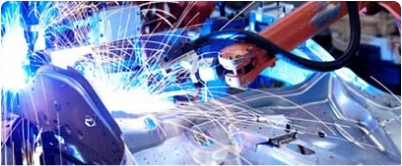The motivation for striving to achieve "Industry 4.0" or the "Smart Factory" is clear: Highest efficiency with maximum flexibility. "Lot size 1" at the cost of series production!
"Lot size 1" at the cost of series production! Within the next 10 years, industry associations, research institutions and consulting firms are forecasting additional value creation potential in the high double-digit billions, massive rationalization effects through the automation of knowledge work and a dramatic increase in "collaboration productivity".

Manufacturing Execution Systems (MES) are often referred to as the enabler of Digital Transformation, as they have always been the link between commercial enterprise software (especially ERP software) and the execution level of the production process.

Enterprise Resource Planning (ERP) systems, traditionally the supreme guardians of all master and transaction data, are predestined for the role of an information hub that collects, prepares and sensibly distributes all extended enterprise data.

The role of the "Single Source of Truth" is also claimed by Product Lifecycle Management (PLM) systems, which not only cover the value-added chain of a company (network), but also the customer behavior and the utilization phase up to the disposal of the product.